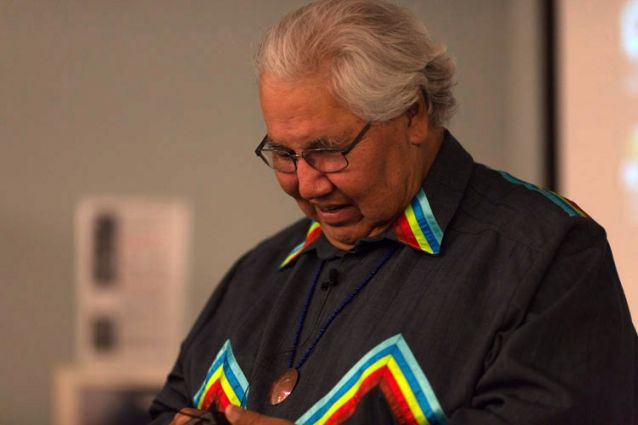In the aftermath of September 11, Canada’s new Anti-terrorism Act (ATA), Bill C-36, received Royal Assent on December 18, 2001. This bill “amended the Criminal Code, the Official Secrets Act, the Canada Evidence Act, the Proceeds of Crime (Money Laundering) Act and a number of other Acts. It also enacted the Charities Registration (Security Information) Act. It was not a stand-alone Act, but rather an amending statute. The ATA formed a key component of the Government's Anti-terrorism Plan, which had four objectives:
to prevent terrorists from getting into Canada and protect Canadians from terrorist acts;
to activate tools to identify, prosecute, convict and punish terrorists;
to keep the Canada-U.S. border secure and a contributor to economic security; and
to work with the international community to bring terrorists to justice and address the root causes of violence.”1
Subsequent anti-terror and security bills have followed C-36, including Bill C-51, Bill C-24, and Bill S-7, expanding powers and curtailing freedoms. At the same time, new digital technologies that could not have been foreseen in 2001 have since made it easier than ever to track and document the movement and behaviours of citizens across the country.
Despite its stated scope of focusing on terrorism suspects, what this act also did was amplify the surveillance and scrutiny of racialized and religious minorities. In his research into the effects of national security measures on the Canadian Muslim male population, Tabasum Akseer documented that “all Muslim participants reported that they had changed their behaviour, limited their mobility, and presented themselves in ways that enabled them to “blend in” and avoid standing out, online and off-line.”2
Faisal Joseph's experience at Hamilton International Airport also proves illustrative. Joseph, who is legal counsel to the Canadian Islamic Congress, was on his way from Hamilton to Ottawa when he was pulled aside for a heightened security check and ultimately made to miss his flight... Ironically, Joseph was on his way to meet the Minister of Justice to voice concerns that Canada's new anti-terrorism legislation promoted racial profiling and discrimination." - Reem Bahdi
Bill C-36, bills that followed and the broader public discourse around anti-terror measures have for two decades consistently sown seeds of hatred and suspicion against entire communities in Canada. This hatred has most notably culminated in the 2017 Québec City mosque shooting3 and the targeted hate crime against a Muslim family in London, Ontario this past summer.4
Bill C-36 also (further) criminalized protest in Canada. While the early signs of this were seen at the first major protest event held in Canada post-9/11, the 2002 G8 Summit in Kananaskis5, the level of security surveillance and police violence reached its pinnacle at the Toronto G20 protests in 2010.6
The January/February issue of the Monitor explores life twenty years after the introduction of Bill C-36. We are accepting pitches that explore the following questions (and more!): How do we make amends for the damage twenty years of Islamophobia has done to Muslim communities across Canada? Is facial recognition the final frontier for the privacy rights front? Is there any information that would be harvested by C-36 and subsequent bills that users aren’t already allowing companies to harvest when they agree to apps terms and services? Given the continued police aggression towards protests at Fairy Creek,7 at the homeless encampments in Toronto,8 at the legal Unifor picket line at the Regina Co-op Refinery,9 how do we restore freedom of assembly in Canada?
What we're looking for
We are looking for feature articles, investigative journalism, illustrations, and book reviews that are rooted in an intersectional analysis between 700-1,500 words. Your writing style should be accessible (not academic or theoretical).
The Monitor is committed to maintaining gender equity in every issue and is actively working to promote work from Black, Indigenous, and racialized writers. We prioritize publishing authors who are 2SLGBTQQIA+, disabled, fat, poor, and/or otherwise marginalized.
Pitches for the January/February issue are due October 20, 2021.
How to pitch
Your pitch should include what topic you want to cover, how you are approaching it (style, content) and your estimated word count. Please also include your relevant experience and background in writing about this topic. Pitches should be sent to monitor@policyalternatives.ca.
If you have not written for the Monitor before, please provide a link to a short writing sample.
If your pitch is accepted, first drafts are due November 20, 2021. We will work with you through the editing process. We reserve the right to edit your work.
We aim to reply to every pitch–including those that we can’t accommodate right now. However, because of time constraints and the volume of pitches we receive, we may not be able to respond to everyone. If you don’t hear back within two weeks of the pitch deadline, please assume that we were unable to accept your pitch.
We encourage you to keep reading the Monitor and pitch us again in the future!
Endnotes
1 https://www.justice.gc.ca/eng/...
2 https://globalnews.ca/news/793...
3 https://theconversation.com/re...
4 https://www.queensu.ca/cidp/si...
5 https://www.theage.com.au/nati...
6 https://www.theguardian.com/wo...
7 https://thenarwhal.ca/fairy-cr...
8 https://www.thestar.com/opinio...
9 https://pressprogress.ca/an-oi...
10 Reem Bahdi's quote is from: Bahdi, Reem. "No Exit: Racial Profiling and Canada's War against Terrorism." Osgoode Hall Law Journal 41.2/3 (2003) : 293-317.
http://digitalcommons.osgoode....





